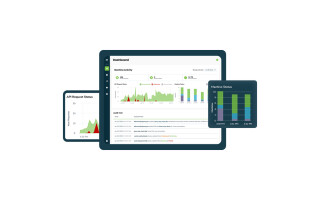Curtiss-Wright
Suite 200
Ashburn, Virginia 20147 [email protected]
https://www.curtisswrightds.com/

Avionics
Radar/EW
Sensor Open Systems Architecture (SOSA): Enabling the next generation of flexible and adaptable radar systems - Story
February 08, 2021In order to keep up with the continued acceleration of new technology and to be able to protect the warfighter from the latest threats, it is essential that we can turn our deployed platforms into adaptable entities that can evolve over time and are not static. The SOSA [Sensor Open Systems Architecture] Technical Standard is the next major step in realizing this goal.
SOSA Technical Standard will benefit systems of all kinds - Story
February 05, 2021The standards currently being defined by the Sensor Open Systems Architecture (SOSA) Consortium will deliver many clear benefits to system integrators designing embedded sensor-processing systems. The SOSA Technical Standard will define common pinouts that foster and ease interoperability. Greater system flexibility will come from the ability to place a variety of module types into the same system slot, while convergence on common interconnect technologies (such as backplane Ethernet) will ease the integration of modular systems.
Sensor Open Systems Architecture (SOSA): Enabling the next generation of flexible and adaptable radar systems - Story
January 15, 2021In order to keep up with the continued acceleration of new technology and to be able to protect the warfighter from the latest threats, it is essential that we can turn our deployed platforms into adaptable entities that can evolve over time and are not static. The SOSA [Sensor Open Systems Architecture] Technical Standard is the next major step in realizing this goal.
Avionics
Top 10 military embedded blogs of 2020 - Blog
December 22, 2020SCOTTSDALE, Ariz. Our most popular blogs on MilitaryEmbedded.com from 2020 covered topics by guest bloggers from VITA, Crystal Group, Winmate, Curtiss-Wright, and Advantech on subjects such as 6G -stealth fighter planes, hardware security trust, UFOs, rugged tablets, tensors, unmanned fighter jets, small form factors, the kill web and more. Check them out below.








